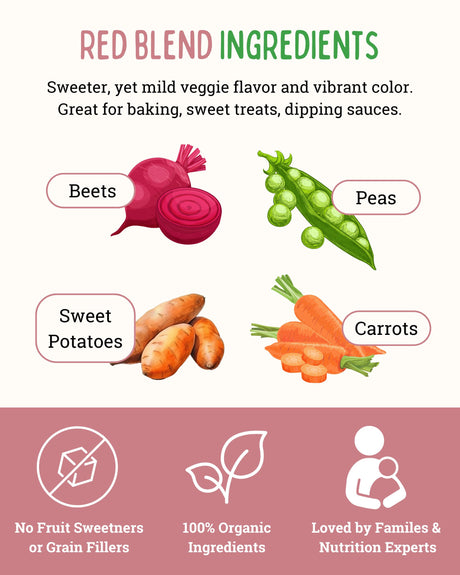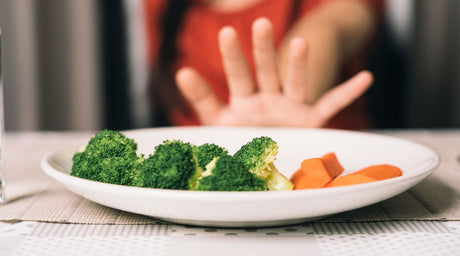The Significance of Hydration
Ensuring that your child stays adequately hydrated is paramount for their overall health and well-being. Hydration plays a pivotal role in a child's physical, mental, and emotional development.
It's not just about quenching their thirst; it's about providing the essential fluid their bodies require to function optimally.
The Role of Water in a Child's Body
Water is the unsung hero in a child's body, working behind the scenes to keep everything running smoothly. It's not just a simple drink; it's the foundation of life itself. Water helps transport vital nutrients, regulate body temperature, and lubricate joints.
Additionally, it aids in digestion, promotes healthy skin, and supports the body's detoxification processes.
The Importance of Proper Hydration
As a parent, understanding the profound impact of hydration on your child's health is the first step in ensuring their well-being. Dehydration can lead to a cascade of problems, affecting everything from their physical performance to their ability to focus and learn in school.
By recognizing the significance of hydration, you can take proactive steps to keep your child healthy and thriving.
The Impact of Dehydration
Consequences of Dehydration on Physical Health
Dehydration in children can have significant repercussions on their physical health. When a child's body lacks adequate water, it can lead to a range of issues, including fatigue, muscle cramps, and heat exhaustion.
Even mild dehydration can affect their ability to perform physical activities and may hinder their participation in sports or playtime. It's crucial for parents to recognize these physical signs of dehydration and take prompt action to rehydrate their child.
Effects of Dehydration on Cognitive and Emotional Well-Being
Beyond its physical implications, dehydration can also take a toll on a child's cognitive and emotional well-being. Studies have shown that even mild dehydration can lead to difficulties in concentration, memory, and problem-solving.
Children may become irritable, moody, or have trouble regulating their emotions when they are not properly hydrated. These cognitive and emotional effects can have a direct impact on their school performance and overall quality of life.
The Importance of Staying Hydrated
Understanding the consequences of dehydration underscores the importance of keeping your child well-hydrated. As a parent, it's essential to be proactive in ensuring they have access to water throughout the day, especially during physical activities or hot weather.
By addressing both the physical and cognitive aspects of dehydration, you can help your child thrive both in and out of the classroom.
Daily Hydration Needs
Age-Specific Hydration Guidelines
It's crucial to recognize that hydration needs can vary significantly based on a child's age. Infants, for instance, have different hydration requirements than teenagers. For babies who are exclusively breastfed, breast milk provides the necessary hydration during the first six months of life.
As they transition to solid foods, offering water alongside meals becomes important. Toddlers and preschoolers are often more active and may need increased hydration, but their small bodies have limited capacity, so they may need frequent sips of water throughout the day.
School-age children and teenagers who engage in sports or physical activities require sufficient fluids to replace what they lose through sweat. Providing water as well as encouraging them to eat water-rich fruits and vegetables can help meet their hydration needs.
Factors Affecting a Child's Hydration Requirements
Several factors can influence a child's hydration needs. Weather conditions, for example, can play a role. Hot and humid weather, or even excessive sweating during intense physical activities, can lead to increased fluid loss.
Illnesses that involve fever, vomiting, or diarrhea also require extra attention to hydration to prevent dehydration. Dietary choices matter too. Diets high in salty or processed foods can contribute to greater fluid loss and the need for increased water intake.
Similarly, children who consume a lot of caffeinated or sugary beverages may require more water to counteract the potential dehydrating effects of these drinks.
Understanding these age-specific guidelines and the factors that affect hydration can help parents ensure their children receive the appropriate amount of fluids to support their overall health and well-being.
Signs of Dehydration in Kids

Recognizing the Early Signs of Dehydration
Parents and caregivers should be vigilant in identifying the early signs of dehydration in children. These can include increased thirst, dry mouth, dark yellow urine, and infrequent urination.
Additionally, a child may appear lethargic, irritable, or less active than usual. Dry or sticky mouth, sunken eyes, and dry skin can also be indicators. Pay attention to your child's behavior and physical cues, especially in hot weather or when they are physically active.
Understanding When to Seek Medical Attention
In most cases, mild dehydration can be managed by increasing fluid intake and ensuring your child gets adequate rest. However, it's essential to be aware of situations where medical attention may be necessary.
If your child experiences severe dehydration symptoms such as extreme lethargy, rapid heartbeat, rapid breathing, or fainting, seek immediate medical care. Furthermore, if your child is unable to keep fluids down due to vomiting or has diarrhea that lasts for an extended period, it's crucial to consult a healthcare professional.
Dehydration can escalate rapidly in these situations, and prompt medical intervention is essential to rehydrate and prevent complications. By staying informed about these signs and understanding when to seek medical help, parents can help ensure their children's hydration needs are met and their health is protected.
Promoting Hydration at Home

Strategies for Encouraging Kids to Drink More Water
Promoting hydration at home can be a fun and educational experience for children. One effective strategy is to provide colorful and attractive water bottles with their favorite characters or designs.
Children are more likely to drink from containers that they find appealing. Additionally, setting a good example as a parent is essential. Make a habit of drinking water throughout the day, and your children are more likely to follow suit.
Encourage regular water breaks during playtime or study sessions, helping kids understand that staying hydrated supports their overall well-being.
Hydration Through Diet: Incorporating Water-Rich Foods
Incorporating water-rich foods into your child's diet is a delicious way to keep them hydrated. Fresh fruits like watermelon, oranges, and strawberries have high water content and are excellent choices for snacks.
You can also include cucumber slices, celery sticks, and bell pepper strips in their lunchboxes for a hydrating crunch. Soups and broths made with vegetables and lean proteins are another great way to keep kids hydrated while providing essential nutrients.
Smoothies made with yogurt or milk and loaded with fruits and veggies are both hydrating and nutritious options. By incorporating these strategies and water-rich foods into your child's daily routine, you can ensure they stay properly hydrated for optimal health and well-being.
The Importance of Hydration in the School Environment

School is a place of learning, growth, and social interaction for children. It's also a setting where proper hydration is crucial. Dehydration can hinder a child's ability to concentrate, affect their mood, and impact their overall performance in the classroom.
This is why it's essential to emphasize hydration as a fundamental aspect of a child's school experience.
Tips for Ensuring Children Stay Hydrated During School Hours
- Water Bottles as Must-Have Accessories: Encourage your child to carry a reusable water bottle to school. Having easy access to water throughout the day makes it more likely they'll take sips between classes and during breaks.
- Lunchbox Hydration: Include a water bottle or container of water-rich fruits like watermelon or cucumber slices in your child's lunchbox. These options not only hydrate but also provide essential nutrients.
- Educational Approach: Teach your child about the importance of hydration. Explain how water helps their bodies function, and why it's vital for their energy and focus. When children understand the 'why,' they're more likely to take it seriously.
Hydration During Physical Activity
Staying Hydrated During Sports and Physical Activities
When it comes to physical activity, especially in warm weather, staying hydrated is crucial for children. Encourage your child to drink water before, during, and after any sports or outdoor activities.
It's essential to remind them to take short breaks to hydrate, even if they don't feel thirsty, as thirst isn't always an accurate indicator of hydration needs.
The Role of Electrolyte Drinks vs. Water
While water is generally sufficient for most activities, in cases of prolonged or intense exercise, electrolyte drinks can be beneficial. These drinks help replenish lost electrolytes, such as sodium and potassium, which are essential for proper muscle function.
However, it's essential to choose drinks with low sugar content to avoid excessive sugar intake.
Creative Hydration Solutions

Fun Ways to Make Drinking Water More Appealing to Kids
Getting kids excited about drinking water can be a creative and enjoyable process. Consider using fun, colorful water bottles with their favorite characters or designs to make hydration more enticing.
Additionally, you can infuse water with slices of fresh fruits like strawberries, citrus, or cucumber, giving it a hint of flavor and a burst of color.
Healthy Alternatives to Sugary Beverages
Replace sugary beverages like soda and sweetened fruit juices with healthier alternatives. Freshly squeezed fruit juices diluted with water can be a tasty and nutritious option. Herbal teas, either hot or cold, are caffeine-free alternatives that can be sweetened with a touch of honey or a sprinkle of cinnamon for added flavor.
Creating Hydration Challenges
Make hydration a game by creating challenges or goals. For example, you can challenge your child to finish a certain number of water bottles throughout the day or reward them for reaching their daily hydration target.
Tracking their progress on a colorful chart or using a hydration app can add an element of fun and motivation to the process. By incorporating these creative hydration solutions into your child's routine, you can make staying hydrated an enjoyable and healthy habit.
Remember that setting a positive example by drinking water yourself and providing nutritious options is key to encouraging your child to embrace these habits for life.
Recap of the Importance of Hydration for Kids
Ensuring your child stays well-hydrated is not just a matter of quenching their thirst. Hydration plays a vital role in their overall health and well-being. From physical fitness to cognitive function, hydration is a cornerstone of a child's development.
It's essential to recognize the early signs of dehydration, understand daily hydration needs, and promote healthy habits at home.
The Long-term Benefits of Prioritizing Proper Hydration in Childhood
Prioritizing proper hydration during childhood sets the stage for a lifetime of healthy habits. Children who learn to stay well-hydrated are more likely to carry these practices into adulthood, reducing the risk of various health issues associated with chronic dehydration.
Proper hydration supports physical growth, cognitive development, and emotional well-being, providing a strong foundation for a healthy and vibrant future. In conclusion, fostering good hydration habits in children is a proactive and caring way to support their overall health and well-being.
By recognizing the signs of dehydration, promoting healthy hydration at home, and encouraging creative solutions to make drinking water appealing, you're helping your child build a strong foundation for a lifetime of well-hydrated health and vitality.
Leave your comments below; we love to hear from you! And don't forget to follow EasyPeasie for more veggie info and convo on YouTube, Facebook, and Instagram! ~ThePeas













